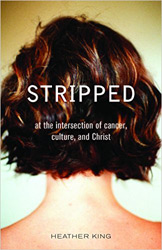I have been on an Alice Munro binge, gobbling up her latest collection of short stories titled Dear Life, and then rummaging through the pile of books on my nightstand to devour Runaway, which I purchased on a Borders discount table years ago and somehow never read.
 Alice Munro stories are about regular people, about love and marriage and friendship and family history and grief. They are about decisions made and not made, decisions made then reversed, and the consequences of all of that making and not making and unmaking for the deciders and their loved ones. They are about families where love flourishes in spite of everything, and families where love fails to flourish in spite of everything. They are remarkably captivating for stories in which the action is often centered on the relatively mundane hurts and triumphs of so many human lives. In many of her stories, not much happens, but everything happens, everything that marks our lives as unique and human—loss and grief, sudden romantic love and decades-long steady love, rising from bed every morning to do it, whatever “it” is, again and again and again.
Alice Munro stories are about regular people, about love and marriage and friendship and family history and grief. They are about decisions made and not made, decisions made then reversed, and the consequences of all of that making and not making and unmaking for the deciders and their loved ones. They are about families where love flourishes in spite of everything, and families where love fails to flourish in spite of everything. They are remarkably captivating for stories in which the action is often centered on the relatively mundane hurts and triumphs of so many human lives. In many of her stories, not much happens, but everything happens, everything that marks our lives as unique and human—loss and grief, sudden romantic love and decades-long steady love, rising from bed every morning to do it, whatever “it” is, again and again and again.
The final four stories in Dear Life are semi-autobiographical. I was left with a deep longing upon reading Munro’s brief introduction to those stories:
The final four works in this book are not quite stories. They form a separate unit, one that is autobiographical in feeling, though not, sometimes, entirely so in fact. I believe they are the first and last—and the closest—things I have to say about my own life.
Such limited and circumspect autobiography is exactly opposite to most of my writing, which is intentionally and deeply autobiographical. Reading Munro’s introduction left me aching with envy for Munro and for all fiction writers, for having the talent to take their own stories, what they witness and what they feel, what they understand about other people and the world, and make them into stories about other people, what they witness and feel, what they understand (and don’t) about other people and the world.
I wish I could do that. Maybe someday I’ll try. But in the meantime, I feel certain that the sort of writing I’ve chosen, which involves offering my story, my feelings, and my opinions in all their imperfections, to the world, is important. At least to me and the people who read this blog and my book and the articles I write here and there. But anytime I hit “post” on the blog or “send” on an email containing the polished draft of something, I feel a little bit sick. Because I know what’s coming. Some people will love what I write. Some will hate it. Most people will ignore it or never know it existed. And while this is also true of fiction, autobiographical writing also invites people to assess the writer as well as the writing in an intensely personal way, to accuse you of being stupid or callous or careless or faithless or hell-bound. To assume they know and understand everything about you because they know that you have a genetic disorder or have children or believe in God or vote Democrat.
It is a necessary part of the writing life to absorb evaluation of one’s work—a pleasant part when the evaluation is positive, a difficult but important part when the evaluation is negative. But it is, I think, the special curse of the autobiographical writer to also be confronted with regular evaluation of one’s self, or at least the self that some readers believe they know and understand completely.
I know people can do this to fiction writers as well—allow their dislike of someone’s work to morph into rejection of the person. Even some big-name writers reviewing books for the New York Times and such can sometimes spend far too much ink convincing us of an author’s personal failings, rather than the failings of his or her work. People read through their own lenses, making assumptions they ought not make. People can be cruel and self-absorbed. The Internet enables people to say terrible, mean-spirited, thoughtless things without putting their name on any of it. And I know full well that if I were to write a work of fiction, and then sit back to watch for reaction, I would feel just as winded and wounded and worked-up by criticism and misunderstanding and assumption as I am when I write a work of autobiographical nonfiction.
But those words of Alice Munro’s still enthrall me, the idea that one could be a writer, a wonderful writer, and write for decades before eventually penning four short stories that are the first and last works to reveal something personal about the writer. And that even those works could be opaque, cloaked, the reader unable to know which parts are autobiographical and which are not.
This is all to say: I envy fiction writers and sometimes wish I could be one, but I don’t think I have that particular talent. And also, occasional weeks of silence on the blog, like this one past, are usually rooted in the intense vulnerability I feel when I hit “publish” on any blog post, but especially on those posts, like last week’s “Message to the ‘Nones'” that speak simultaneously to something deeply felt within me and something intensely debated in our culture. I feel hollowed out, like I’ve just ripped a few internal organs from my torso and laid them out for others to feast on. Which leaves me both exhausted and reluctant to go through that sort of agony again.
The reason I know that I am called to be a writer is that, in spite of all that, I will do it again. Some part of me understands that my own healing and wholeness requires me to open myself up and hollow myself out, again and again and again.
I love writing, but I don’t always like it.
Go read some Alice Munro short stories. My descriptions cannot do them justice.











